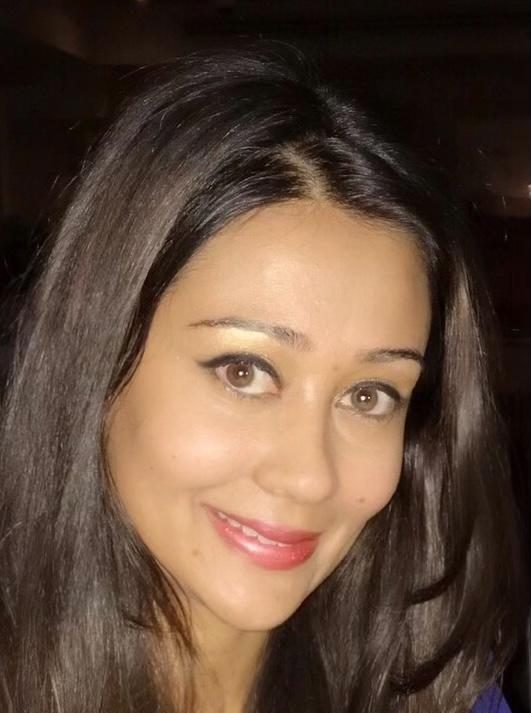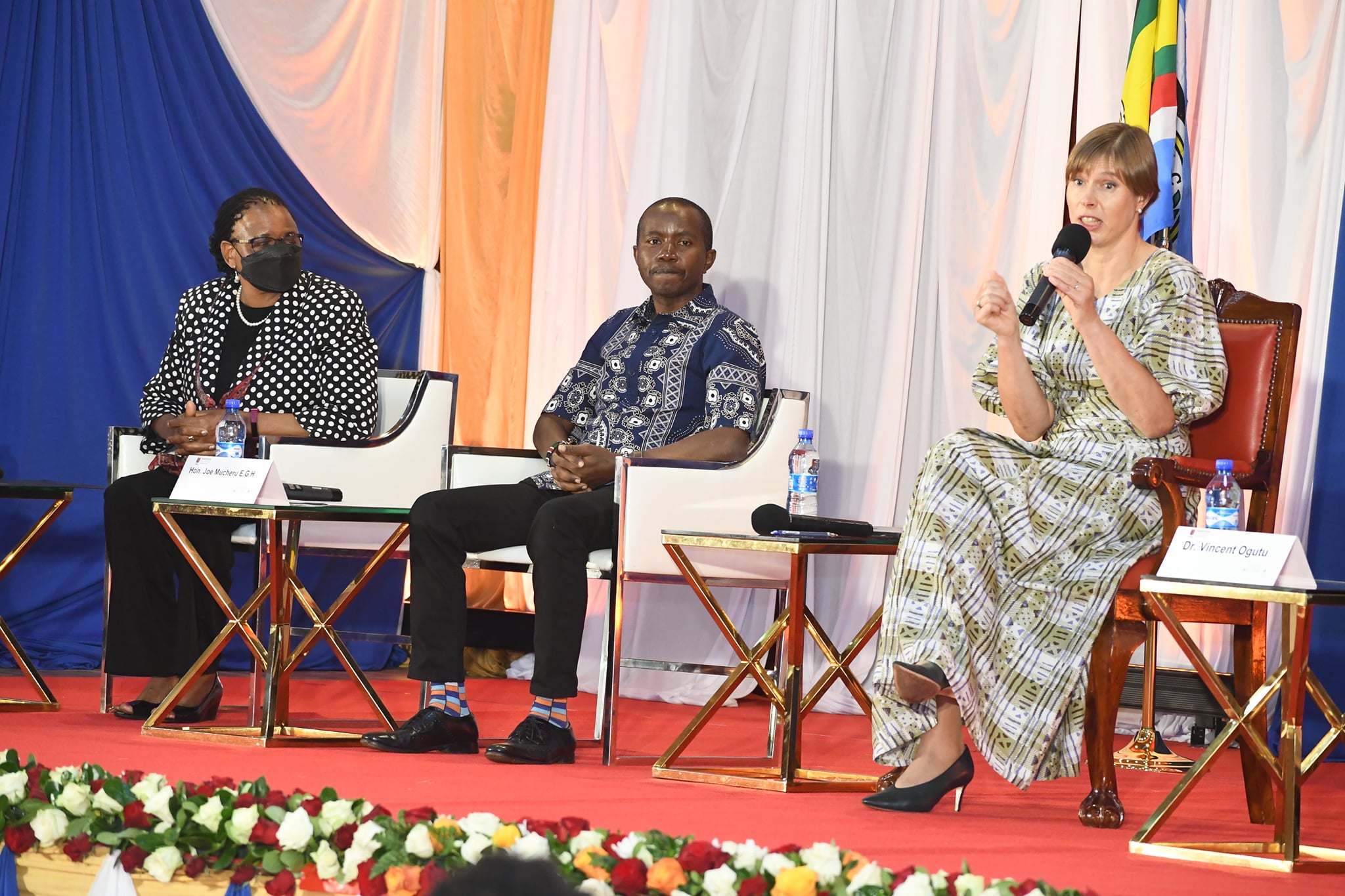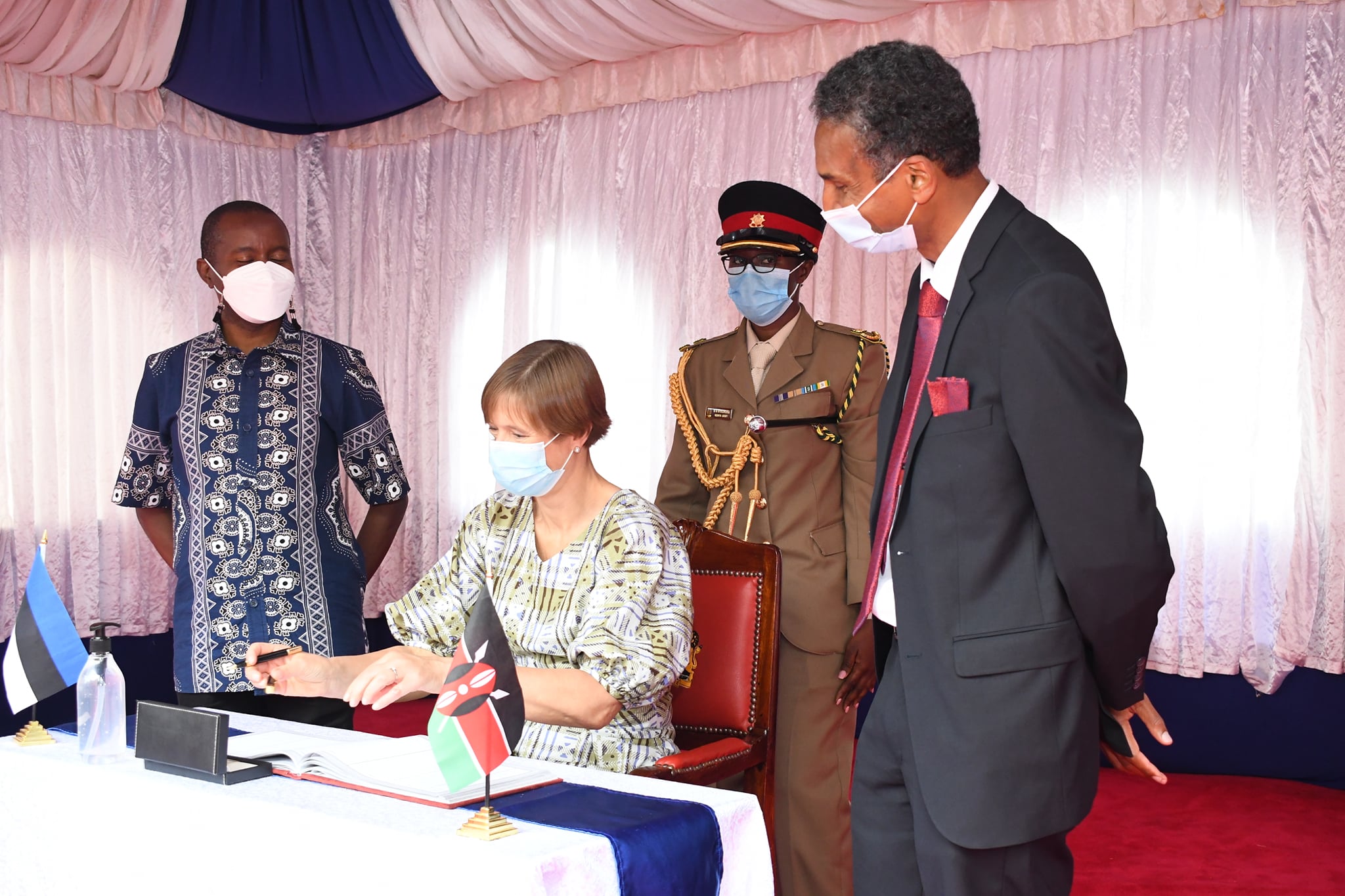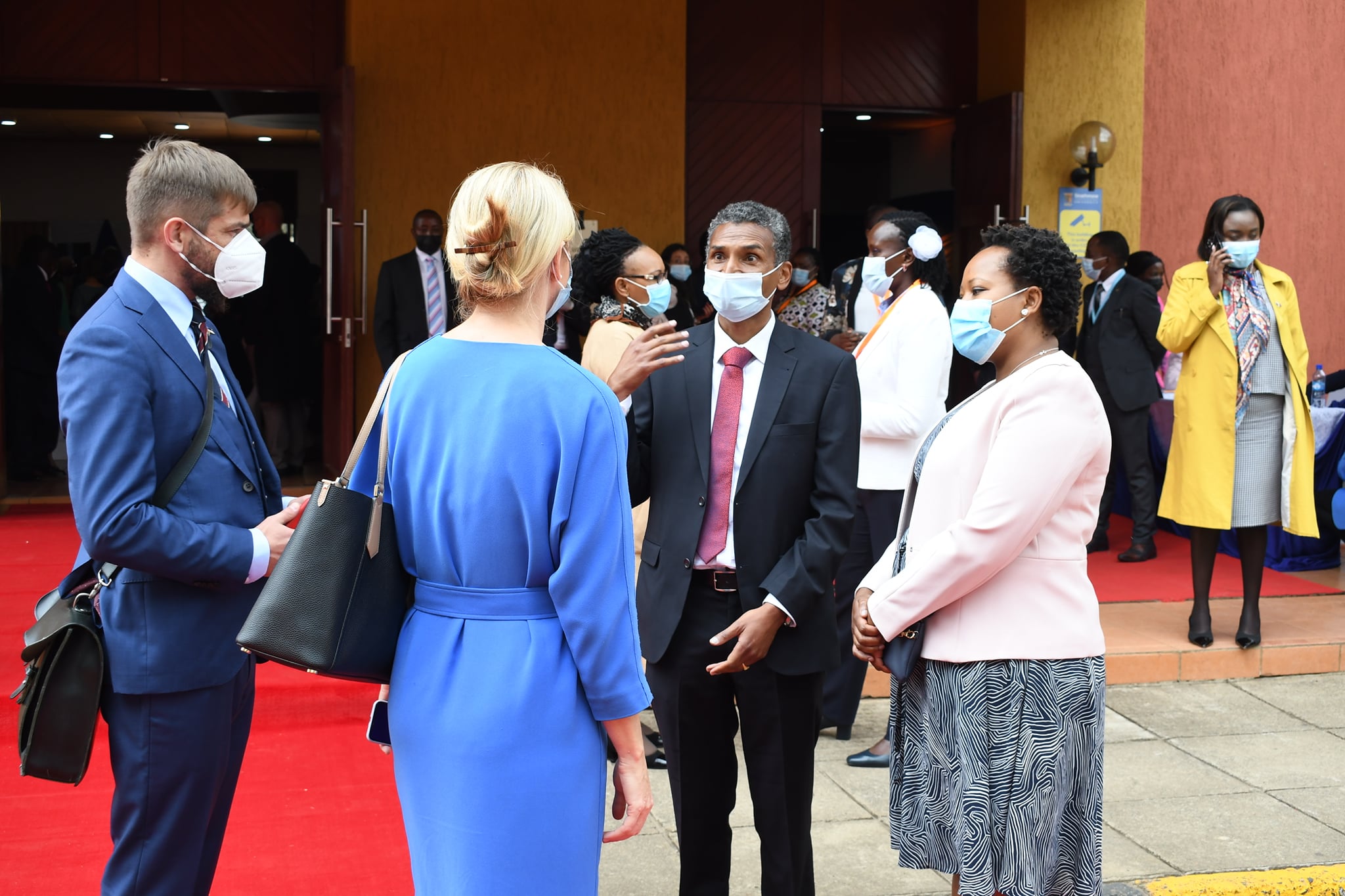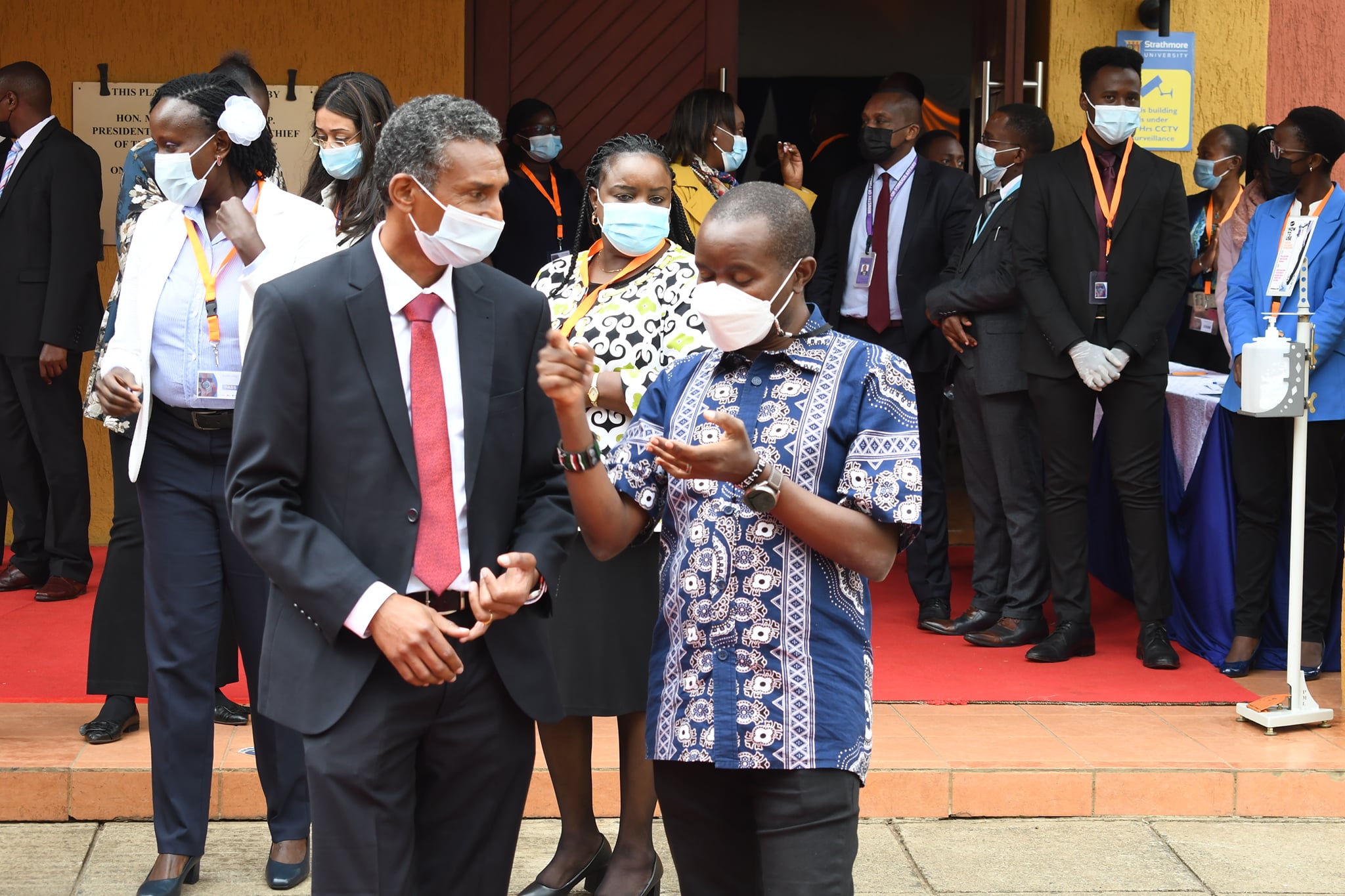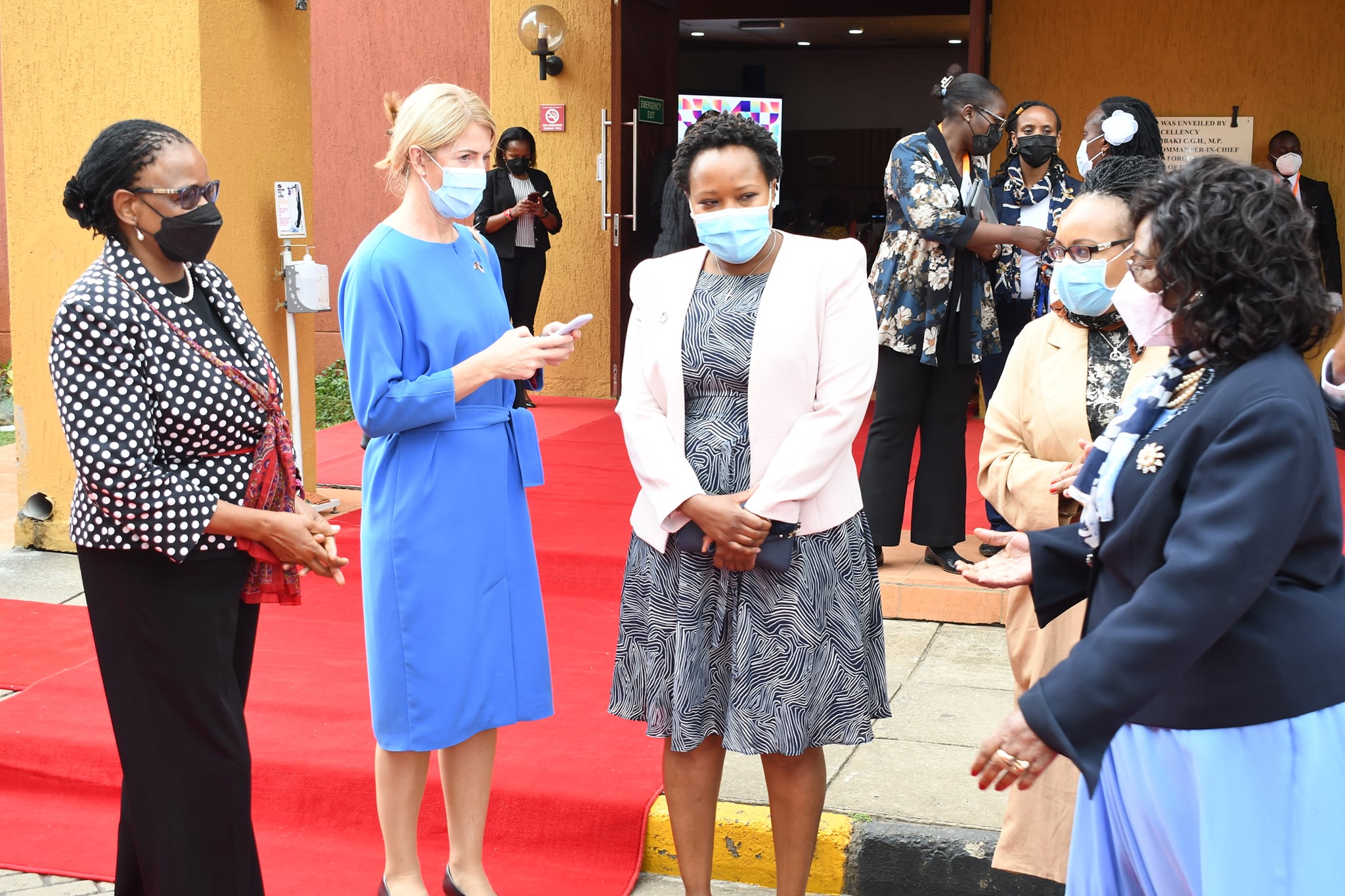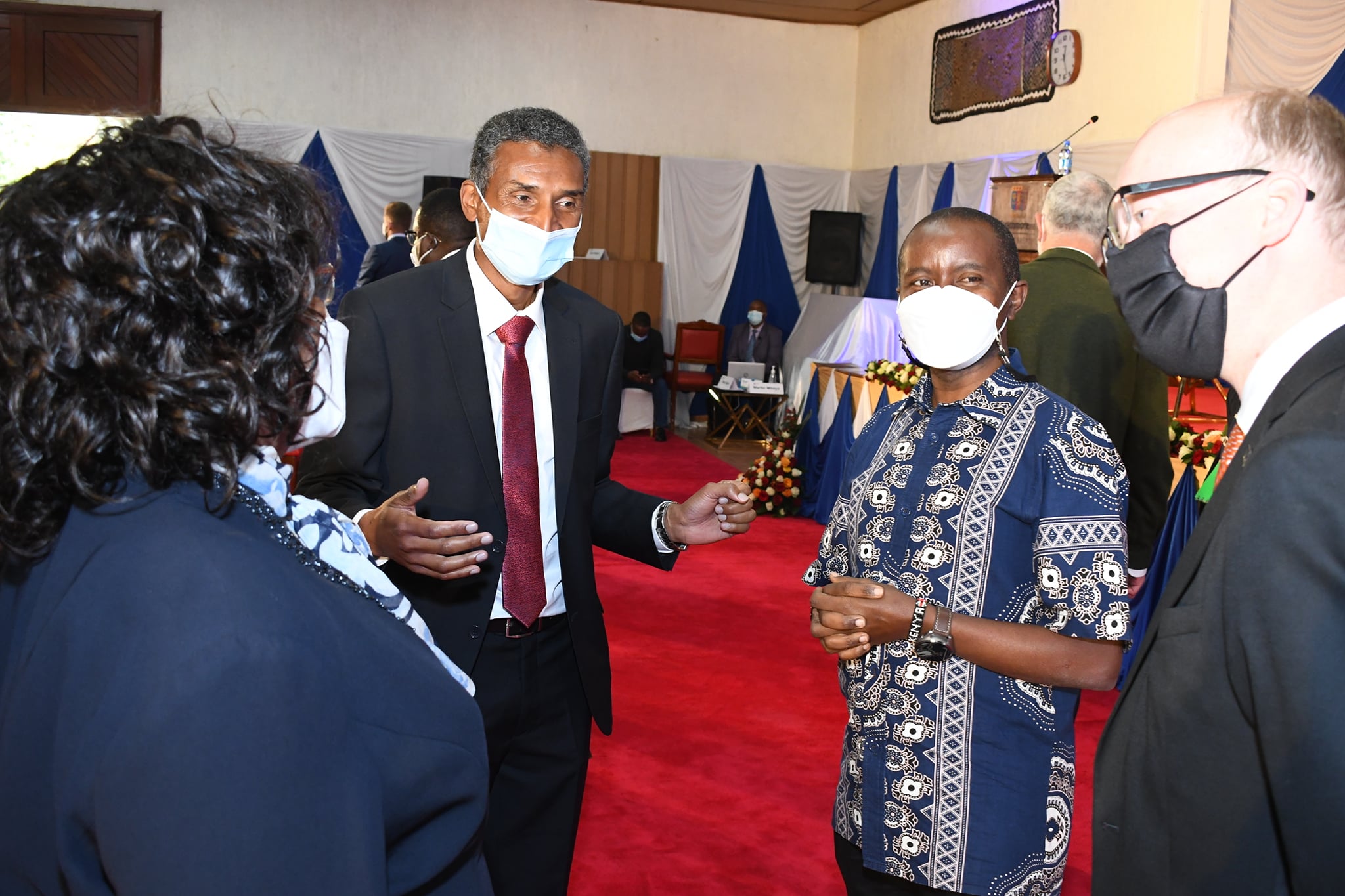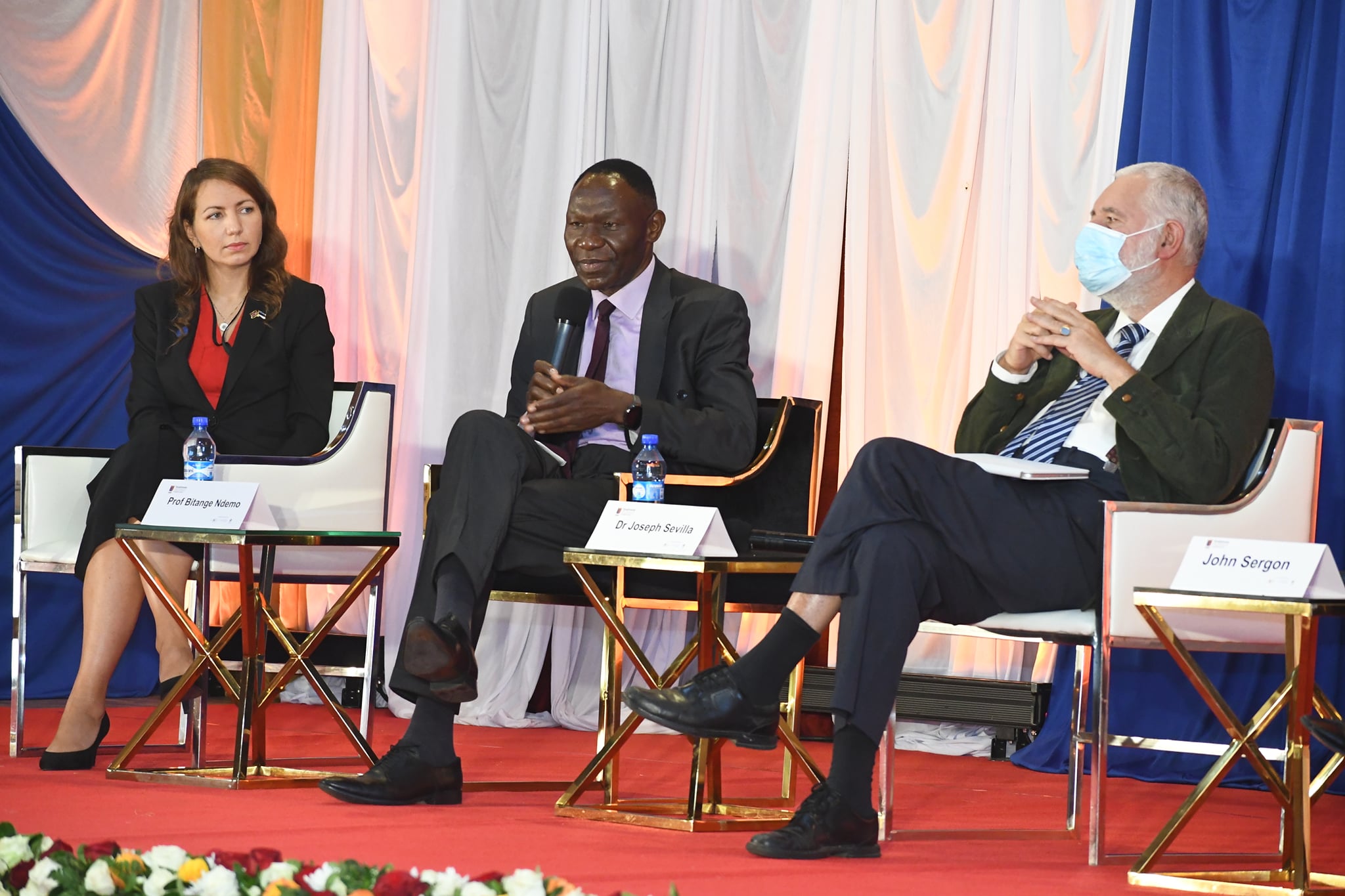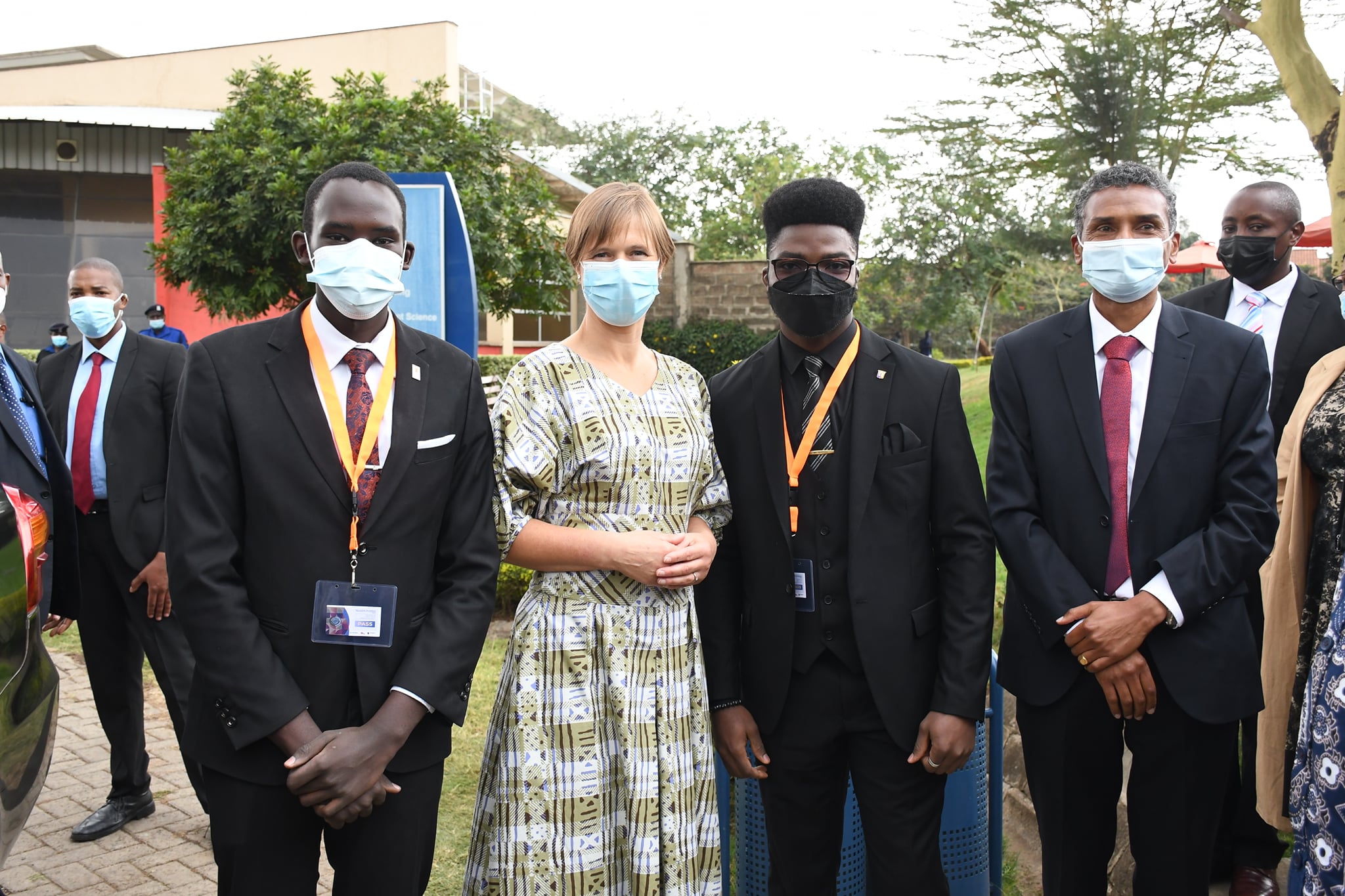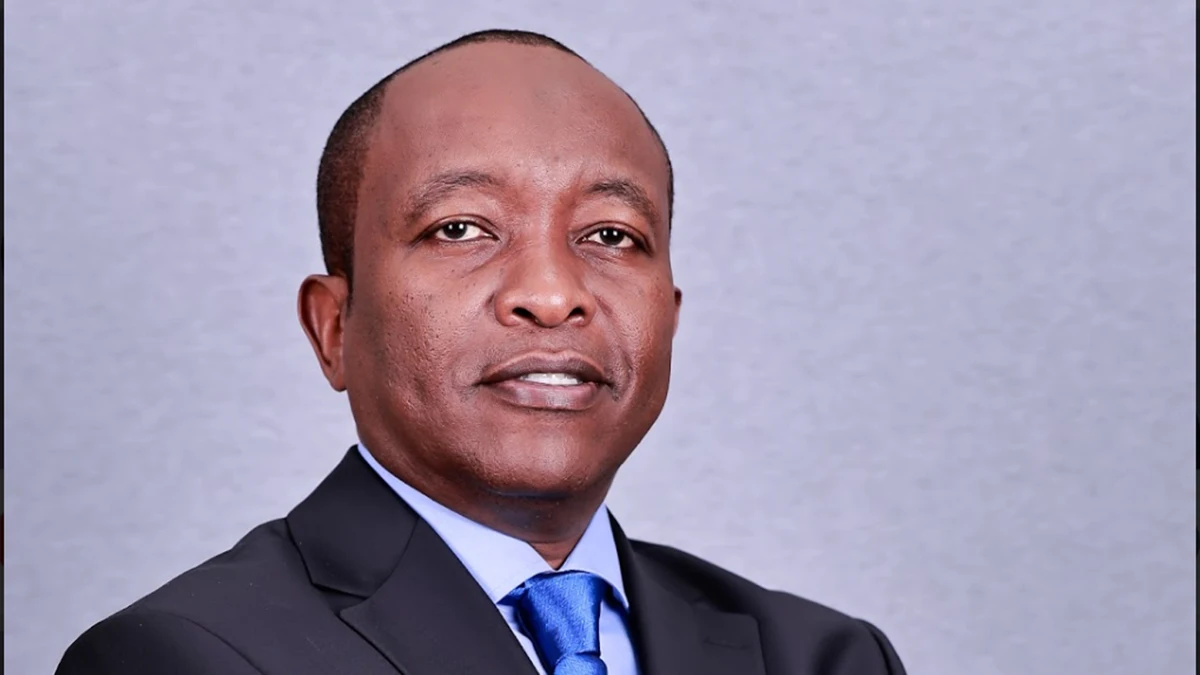Last week, Strathmore University Business School in collaboration with TalTech University of Estonia hosted the first High-Level Think-Tank meeting on Sustainability for e-Governance in Kenya. The scope of the High-Level Think-Tank meeting was based on Estonia’s cooperation with Africa which aims at strengthening bilateral and multilateral relations based on shared values, interests and equal partnership.
Estonia has been dubbed ‘the most advanced digital society in the world,’ by Wired. The country boasts an efficient, secure and transparent ecosystem where 99% of governmental services are online. A key priority for Estonia’s engagement with African countries is to share their expertise in e-governance and e-services which have been developed over 30 years.
The meeting that took place on 10th September 2021 at the Strathmore University Auditorium, was attended by the Estonian President H.E. Mrs. Kersti Kaljulaid, Dr. Vincent Ogutu, the Vice-Chancellor Designate Strathmore University, Hon. Joe Mucheru E.G.H, the Minister of Cabinet Secretary in the Ministry of ICT, Innovation and Youth Affairs, Kadri Humal Ayal, Honorary Consul of the Republic of Estonia in Kenya, Hon. Lady Justice Martha Karambu Koome the Chief Justice of Kenya, Prof. Bitange Ndemo- Professor of Entrepreneurship at the Faculty of Business and Management Sciences, University of Nairobi, among other key dignitaries.
In his opening remarks, Dr. Vincent Ogutu talked of the importance of e-Governance and how it can help in enhancing efficiency, increasing transparency and accountability. He said, “Whenever you introduce any systems of change or innovation there is going to be a training element that is needed.”
According to Dr. Ogutu, before any systems are implemented, it is vital to gauge how they can be adapted to the particular context. He affirmed that the partnership between Strathmore University Business School and TalTech University which is being supported by the Estonian Development Cooperation will contribute not only to skills enhancement and capacity building but also to research, “I am pleased that the partner we are working with today is the best in the world which will do a lot for us as an institution and as a country.”
Kadri Humal Ayal, Honorary Consul of the Republic of Estonia in Kenya talked of how Estonia is one of the coolest digital societies in the world. It is ranked the highest in a lot of global metrics and now the country is being referred to as a benchmark in technology, “For us it’s a way of life, we take a lot of pride in what we have achieved since our independence in 1991.”
Although Estonia is part of the Baltic states it is considered Nordic. The country has achieved enormous strength by rebuilding itself from poverty to become one of the strongest opinion leaders in the world. The country’s systems are all citizen-centric which has been key to its rapid success. All systems, services and deliverables in Estonia take into consideration the needs of its citizens and the ease of accessibility.
The country also places importance on public-private partnerships, universal internet access and ensuring all individuals own their personal data. Their three pillars for information security are: Confidentiality (e-identification, ID-card, mobile-ID, smart-ID, e-residency card), Availability (X-road, a free and open-source data layer software) and Integrity (KSI blockchain). Kedi Valba, TalTech University Alumni Regional Manager for Africa mentioned, “We have more than three thousand services online in Estonia at the moment. In Estonia the government could not have done it alone, public-private partnerships and the inclusion of Academia is very important.”
In a panel discussion on ‘Best Practices in the areas of digital transformation, e-governance, e-democracy and cyber security,’ moderated by Abby Agina, Deputy Economy Editor, Standard Media Group, Prof. Bitange Ndemo, the Professor of Entrepreneurship at the Faculty of Business and Management Sciences, University of Nairobi said that even though the Kenyan government has made progress towards digitalization which has brought greater productivity more work needs to be done. He said that Kenya can improve its productivity further by creating more opportunities for those at the base of the pyramid and to ensure that every citizen has access to internet, “Affordable, accessible broadband internet access is key.”
Reflecting on the Academic perspective, Dr. Joseph Sevilla, Director of @iLab Africa, Strathmore University talked about how @iLab Africa has been working to use modern technologies to solve local problems. He explained how for the last 10 years, @iLab Africa has been working with counties in Kenya. This has enabled them to have all their tax collection online. Acknowledging Estonia’s achievement of establishing a cashless and paperless society he remarked how this project with the counties strived to achieve this, “All that is cashless because we are using mobile money. We have also been working on projects involving cybersecurity. Just like Estonia, we are aiming for our citizens to be able to do all their transactions online.”
Elaborating on the country’s preparedness to undertake a digital transformation journey in terms of cybersecurity, laws and frameworks, John Sergon, Research Fellow at Strathmore University Business School said that even though there is a lot in terms of knowledge regarding cybersecurity and at a technical level there is capacity, a lot still needs to be done. The key elements that are missing are at the policy level, the laws, frameworks and regulations that will guide the implementation of cybersecurity systems.
Hon. Chief Justice Isaac Lenaola, Supreme Court of Kenya, also emphasized that the impact of technology on the work done in the country is critical and that the country should harness its expertise in this area which will necessitate a culture change in Kenya.
The second panel attended by H.E. Mrs. Kersti Kaljulaid, Estonia President focused on Sustainability for e-Governance in Kenya and was moderated by Uduak Amimo, a leading Journalist in Africa, brought out the importance of training and digitalizing education systems.
H.E. Mrs. Kersti Kaljulaid, said that, nothing changes the world for a better place than education. She emphasized how education is an obligation of every nation towards their youth and that every government has a mandate to provide education to their citizens with the help of the best digital technologies, “That is why TalTech University and Strathmore University Business School are starting a collaboration to develop a program in e-governance here in Kenya.”
She also elaborated on the importance of inclusive national policies that can allow all citizens to access service at all hours, incentivizing digital participation and the gains and benefits of e-governance which include ease and speed of conducting transactions and reducing bureaucracy in government systems by having a single ecosystem.
In his comments, Hon. Joe Mucheru noted that Kenya already occupies a space in Africa similar to the position Estonia occupies in the world in terms of its digital achievements. Reflecting on the country’s digital journey, he said, “When you are dealing with technology and someone has gone ahead of you it is much quicker to catch up. This makes it easier for Kenya to be where we want to be in five years.”
According to him, the current challenge in Kenya is trust. He gave an example about how long it has taken Kenyans to accept the Huduma number, and talked of how the county is in a position to learn and move quickly to ensure that every citizen achieves their digital rights. Currently Kenya has over 120 services online. “Since the constitution says that we must carry everyone with us, we have invested heavily on the access to services across the country. And we have digitized many services from education to getting vaccination certificates. The relationship between the Kenyan and Estonian government will help the country to forge ahead in becoming a digital leader in the world.”
The Estonian e-Governance Academy, a non-profit think tank and consultancy organisation which has also has been training some of the Civil Servants in the various Ministries in Kenya shared their expertise and best practices on the areas of digital transformation, e-governance, e-democracy and cyber security. Arvo Ott, the Director of e-Governance Academy commented on implementation of e-governance. He emphasized how trust and motivation of citizens is important. “Once we have the technology in place, we need to motivate people to start using the electronic services by offering services as cheaply as possible and ensuring privacy and data protection.”
Arvo Ott reminded the participants that, avoiding the digital divide is key to ensuring universal access. And this can be done through awareness creation and training. There is also need for change management to be implemented by political leaders and business managers as well as the need for competencies to be developed at different levels of government through training by experienced professionals from Academia.
Speaking during the session on technology and the Judiciary, Hon. Chief Justice, Martha Koome said that since she joined the judiciary almost twenty years ago, they have been talking about using technology as an enabler to ensure justice to Kenyans. Since COVID-19 struck and their services were reduced, they were forced to transform their systems overnight and embrace technology.
“At the Judiciary, we have embraced technology and we have a few services that can be accessed online. The Supreme Court, the Court of Appeal and the Commercial Court Milimani are now conducting their proceedings online. Other courts are also doing online video hearings and e-filing is now being embraced despite some challenges. We look forward to leveraging on the experiences of Estonia,” said Hon. Chief Justice Koome.
In conclusion, the discussions during the Think Tank sessions focused on the need for global normative principles, regulations, and standards for data governance and the concrete policy and programmatic needs of governments and development partners. The discussions shed light on Estonia’s experience in areas of e-governance and e-services and importance of developing institutional and human capabilities in Kenya through training. They also highlighted the potential of private-public collaborations to accelerate infrastructure development, the importance of gaining citizens’ trust, culture change and training to facilitate the adoption of digital technology and open and inclusive data governance policies.
The cooperation between Estonia and Kenya is set to usher in a new era of digital governance in the 21st century with higher quality, cost-effective government services and citizen-centric systems that will serve society at all levels and bridge the digital divide across Kenya.
By Shailja Sharma, Executive Fellow and Coach
Share This Story, Choose Your Platform!
Your journey to business excellence starts here. Subscribe today and be at the forefront of innovation and leadership.

